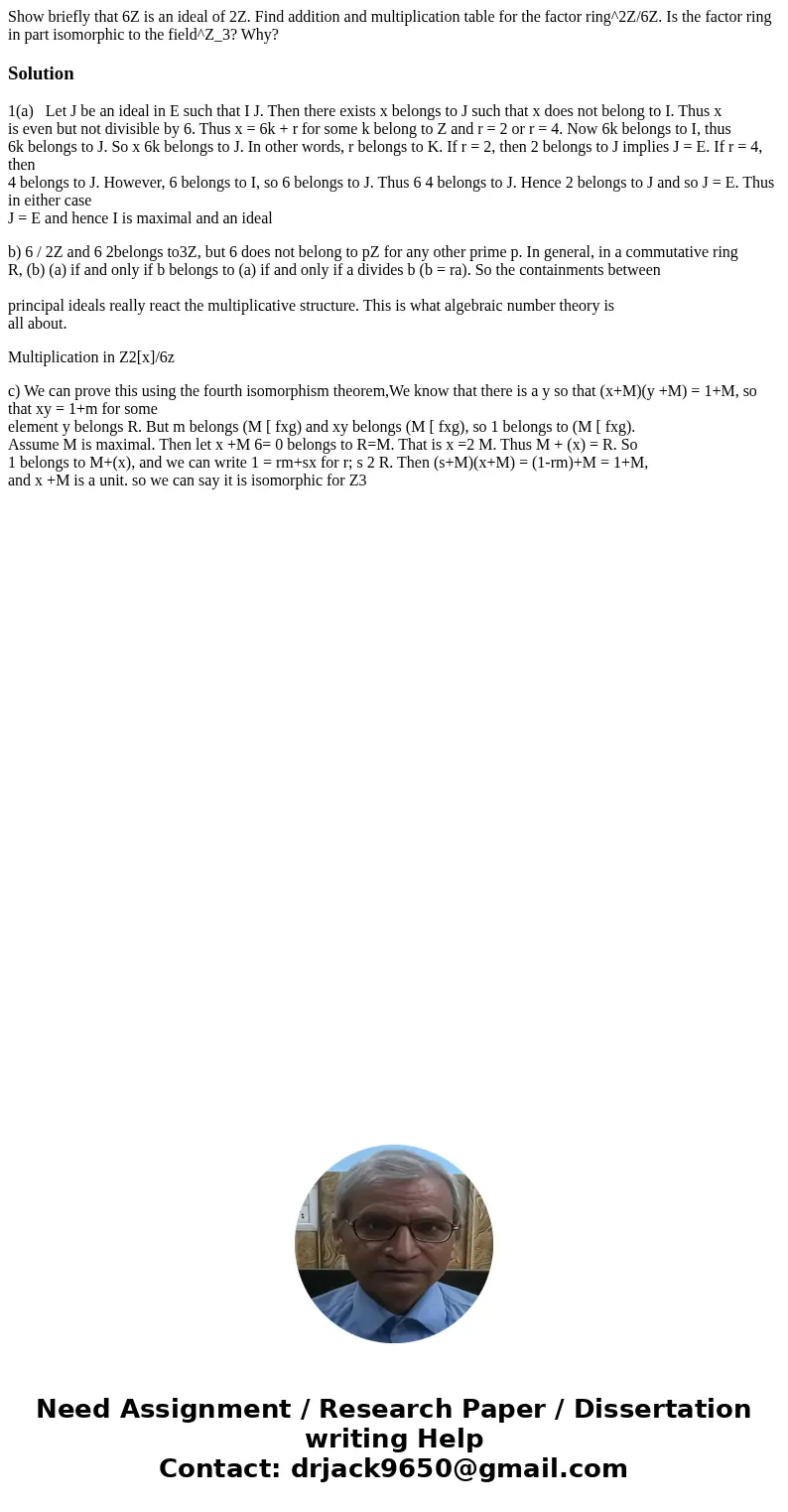Show briefly that 6Z is an ideal of 2Z Find addition and mul
Solution
1(a) Let J be an ideal in E such that I J. Then there exists x belongs to J such that x does not belong to I. Thus x
is even but not divisible by 6. Thus x = 6k + r for some k belong to Z and r = 2 or r = 4. Now 6k belongs to I, thus
6k belongs to J. So x 6k belongs to J. In other words, r belongs to K. If r = 2, then 2 belongs to J implies J = E. If r = 4, then
4 belongs to J. However, 6 belongs to I, so 6 belongs to J. Thus 6 4 belongs to J. Hence 2 belongs to J and so J = E. Thus in either case
J = E and hence I is maximal and an ideal
b) 6 / 2Z and 6 2belongs to3Z, but 6 does not belong to pZ for any other prime p. In general, in a commutative ring
R, (b) (a) if and only if b belongs to (a) if and only if a divides b (b = ra). So the containments between
principal ideals really react the multiplicative structure. This is what algebraic number theory is
all about.
Multiplication in Z2[x]/6z
c) We can prove this using the fourth isomorphism theorem,We know that there is a y so that (x+M)(y +M) = 1+M, so that xy = 1+m for some
element y belongs R. But m belongs (M [ fxg) and xy belongs (M [ fxg), so 1 belongs to (M [ fxg).
Assume M is maximal. Then let x +M 6= 0 belongs to R=M. That is x =2 M. Thus M + (x) = R. So
1 belongs to M+(x), and we can write 1 = rm+sx for r; s 2 R. Then (s+M)(x+M) = (1-rm)+M = 1+M,
and x +M is a unit. so we can say it is isomorphic for Z3

 Homework Sourse
Homework Sourse